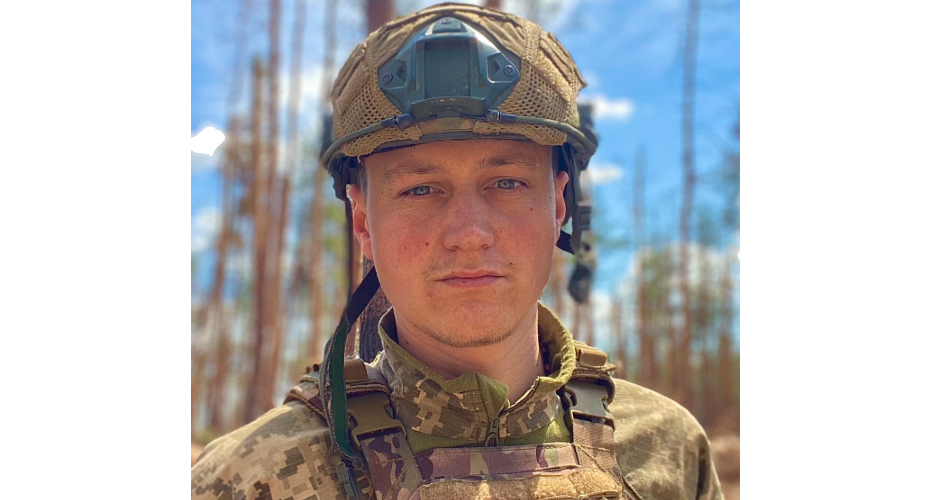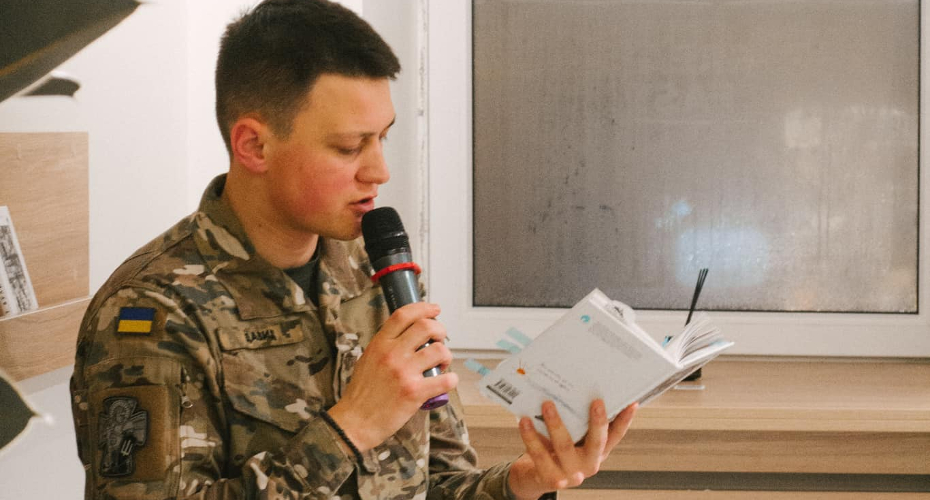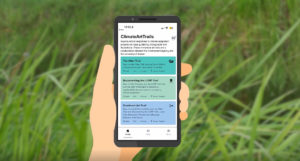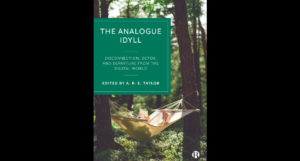Language experts to translate acclaimed Ukrainian poet’s work

Artur Dron has had to endure multiple operations and a nerve transplant after being wounded by shrapnel
Experts in modern languages at the University of Exeter are to help coordinate the translation of an acclaimed poetry collection written from the frontline of Ukraine’s war with Russia.
Senior academics in the Department of Languages, Cultures and Visual Studies will work with project partners to translate into English and publish Artur Dron’s 2023 collection We Were Here, bringing it to a UK readership for the first time.
Dron has been described as one of the brightest stars in a new wave of Ukrainian literature inspired by and responding to Russia’s illegal invasion of their country.
We Were Here was selected by PEN Ukraine as one of its books of the year for 2023 and was written while Dron was serving on the front line in the 125th Territorial Defense Brigade, near his hometown of Lviv.
“’We Were Here’ is a direct and powerful expression of Ukrainian experience on the front line and on the home front,” says project lead Professor Hugh Roberts. “The challenge for us is how to translate that experience in as authentic way as possible for an English-speaking audience. It’s vital, therefore, that we have Yuliya Musakovska, who is a major poet in her own right and a tireless promoter of Ukrainian culture, leading the translation process.”
Ms Musakovska will be translating into English the 50 poems in the collection, working closely with Professor Roberts and translation specialist Professor Helen Vassallo. Prize-winning poets Fiona Benson and Charlotte Shevchenko Knight will serve as editorial consultants, and the finished collection will be published by Jantar Publishing as part of its Amber Poets series.

The project to bring Dron’s collection to English has been funded by a grant from the Ukrainian Book Institute with backing from the Arts and Humanities Research Council’s Impact Acceleration Award, administered by the University. The book is scheduled to be published and launched in November, later this year.
“Translation always has a vital role in connecting communities and as a tool for soft power,” says Professor Vassallo. “At a time when Ukraine’s people, culture, land, and language are under attack, this translation of poetry from the front line represents an act of solidarity for voices from Ukraine that are under threat daily. Special thanks should go to Jantar Publishing in this regard for ensuring that Artur Dron’s work will reach English-language readers.”
The Languages department at the University has orchestrated several projects to showcase the new wave of Ukrainian poetry. These have included public readings and performances, and the recording of several pieces, which are published on YouTube.



